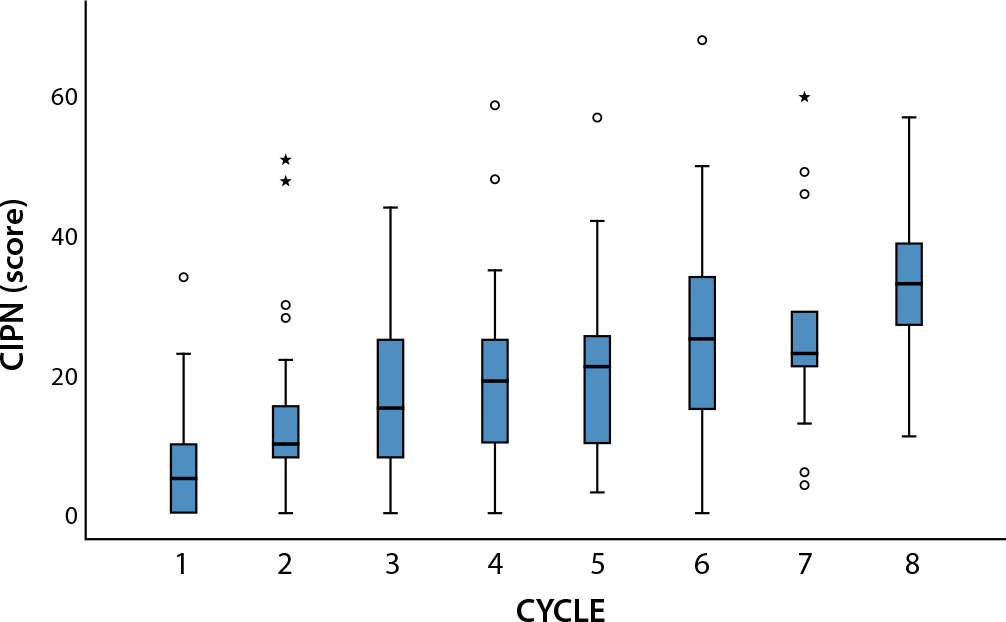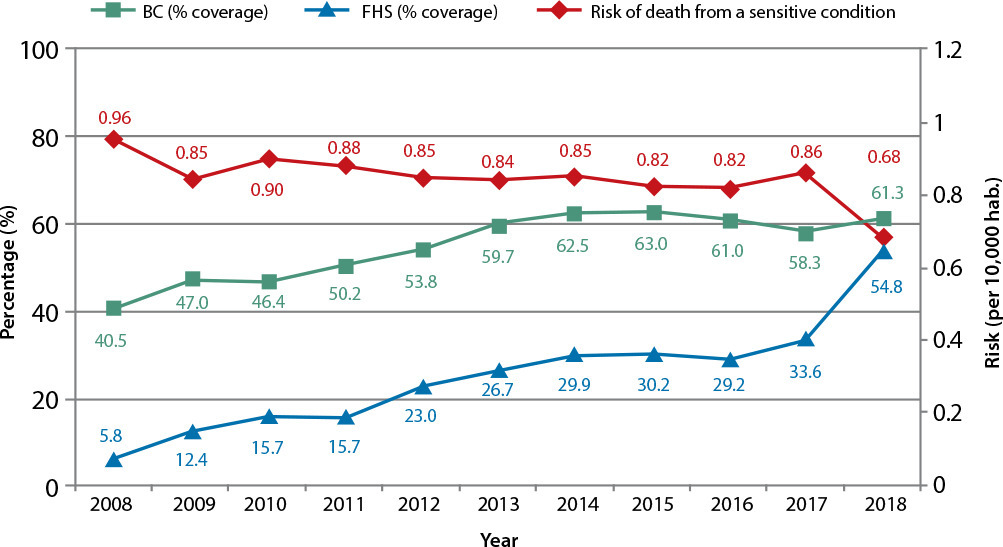-
02-06-2023
The challenge of university teaching in times of the COVID-19 pandemic
Revista Brasileira de Enfermagem. 2023;76(2):e760201
Abstract
The challenge of university teaching in times of the COVID-19 pandemic
Revista Brasileira de Enfermagem. 2023;76(2):e760201
DOI 10.1590/0034-7167.2023760201
Views0This planet’s history has been a long and sometimes tortuous one. To date, a total of five disappearances of life on Earth have been distinguished: the great oxidation; the Ordovician-Silurian extinction; the Devonian extinction; the Permian-Triassic extinction; the Triassic-Jurassic extinction; and the Cretaceous-Tertiary extinction. The causes? Very varied and diverse: anoxia phenomena in the marine […]See more -
EXPERIENCE REPORT02-06-2023
Surgical counting: design of implementation and maintenance of a standardized evidence-based procedure
Revista Brasileira de Enfermagem. 2023;76(1):e20220144
Abstract
EXPERIENCE REPORTSurgical counting: design of implementation and maintenance of a standardized evidence-based procedure
Revista Brasileira de Enfermagem. 2023;76(1):e20220144
DOI 10.1590/0034-7167-2022-0144
Views0See moreABSTRACT
Objectives:
to report the implementation and maintenance of an evidence-based Standard Operating Procedure for surgical counting performed at a teaching hospital.
Methods:
a report of a project to implement evidence for surgical counting, carried out at a university hospital in December 2017, and the subsequent cycles for better performance of the implemented organizational document and maintenance of better results until March 2022.
Results:
the report is divided into implementation project presentation and four other cycles after implementation, related to maintenance of improvements. It was possible to prepare a Standard Operating Procedure for Surgical Count, train the nursing team, carry out educational intervention for surgical teams.
Final Considerations:
there was an improvement in complying with the standardized procedure at the first moment and worsening in the period related to the pandemic. New efforts began again, including a self-instructive online course combined with first-time strategies.
-
REVIEW02-06-2023
Nursing care management concepts: scoping review
Revista Brasileira de Enfermagem. 2023;76(1):e20220020
Abstract
REVIEWNursing care management concepts: scoping review
Revista Brasileira de Enfermagem. 2023;76(1):e20220020
DOI 10.1590/0034-7167-2022-0020
Views0See moreABSTRACT
Objectives:
to clarify the concepts of Nursing Care Management and Nursing Care Administration in the scientific literature, highlighting approximations and distances between the terms.
Methods:
scoping review as per Joanna Briggs Institute protocol and preferred reporting items for Systematic Reviews and Meta-analysis extension for Scoping Reviews (PRISMA-ScR). The searches were performed in LILACS, CINAHL, MEDLINE, and Scopus databases.
Results:
the qualitative analysis, through content analysis, counted 49 studies published between 2007 and 2020. Hospital care was the most evident level of care. It was identified that nursing care management aims at the macropolitical performance of nurses and mobilizes skills essentially strategic-cognitive, while Nursing Care Administration aims at the micropolitical performance of nurses, requiring essentially strategic-administrative skills.
Final Considerations:
the study allowed us to propose the conceptualization of the terms and identify the approximations and distances between them.

-
ORIGINAL ARTICLE02-06-2023
Sexuality and its effects on older adults’ depressive symptoms and quality of life
Revista Brasileira de Enfermagem. 2023;76(1):e20210645
Abstract
ORIGINAL ARTICLESexuality and its effects on older adults’ depressive symptoms and quality of life
Revista Brasileira de Enfermagem. 2023;76(1):e20210645
DOI 10.1590/0034-7167-2021-0645
Views0See moreABSTRACT
Objectives:
to analyze the effects of sexuality on depressive symptoms and quality of life in older adults.
Methods:
a cross-sectional and analytical study, developed with 596 older adults, who completed four instruments for data collection. Data were analyzed using the Kruskal-Wallis test and Structural Equation Modeling, with a 95% Confidence Interval.
Results:
among the sexuality dimensions, only physical and social adversities exerted statistically significant effects on depressive symptoms (SC=-0.095; p=0.003), but with low magnitude. Moreover, all sexuality dimensions had statistically significant effects on quality of life, being of low magnitude for sexual act (SC=0.171; p=0.010) and for physical and social adversities (SC=0.228; p<0.001), and moderate magnitude for affective relationships (SC=0.474; p<0.001).
Conclusions:
effects of different magnitudes were observed between sexuality dimensions on participants’ depressive symptoms and quality of life.

-
ORIGINAL ARTICLE02-06-2023
Internal validity evidence of a knowledge questionnaire on alcohol use, abuse and dependence and associated questions
Revista Brasileira de Enfermagem. 2023;76(1):e20210377
Abstract
ORIGINAL ARTICLEInternal validity evidence of a knowledge questionnaire on alcohol use, abuse and dependence and associated questions
Revista Brasileira de Enfermagem. 2023;76(1):e20210377
DOI 10.1590/0034-7167-2021-0377
Views0See moreABSTRACT
Objectives:
to perform content validity and verify the psychometric properties of the adapted version of an alcohol knowledge questionnaire and associated questions.
Methods:
a methodological study, in which a committee of judges analyzed the questionnaire item representativeness, clarity and relevance. Item response theory was used to assess the instrument psychometric properties applied to a sample of 240 health professionals.
Results:
the questions were adjusted according to judges’ assessment, obtaining a satisfactory Content Validity Index (0.98). High discrimination ability and adequate difficulty levels were observed in 75% of multiple-choice questions and in 25% of statements.
Conclusions:
the instrument presented content validity with satisfactory indices. However, it is recommended that the questionnaire adapted in this study be used in different samples of health professionals from other parts of Brazil, in order to provide greater robustness to its reliability.

-
02-06-2023
COVID-19 Social Thermometer Project: transnational articulations to approach populations in situations of social vulnerability
Revista Brasileira de Enfermagem. 2023;76:e76suppl201
Abstract
COVID-19 Social Thermometer Project: transnational articulations to approach populations in situations of social vulnerability
Revista Brasileira de Enfermagem. 2023;76:e76suppl201
DOI 10.1590/0034-7167.202376suppl201
Views0COVID-19 is an infectious disease that has significantly impacted different contexts around the world, directly and/or indirectly, and on a larger scale in poor and/or developing countries(). We do not know for sure the cumulative effects of COVID-19 on populations (mental disorders, insomnia, anxiety, thrombosis, cognition deficit, memory problems, etc.) after exposure to infection by […]See more -
02-06-2023
Proyecto Termómetro Social COVID-19: articulaciones transnacionales para abordar poblaciones en situación de vulnerabilidad social
Revista Brasileira de Enfermagem. 2023;76:e76suppl201
Abstract
Proyecto Termómetro Social COVID-19: articulaciones transnacionales para abordar poblaciones en situación de vulnerabilidad social
Revista Brasileira de Enfermagem. 2023;76:e76suppl201
DOI 10.1590/0034-7167.202376suppl201es
Views0El COVID-19 es una enfermedad infecciosa que ha impactado significativamente diferentes contextos alrededor del mundo, directa y/o indirectamente, y en mayor escala en países pobres y/o en vías de desarrollo(). No sabemos con certeza los efectos acumulativos del COVID-19 en las poblaciones (trastornos mentales, insomnio, ansiedad, trombosis, déficit cognitivo, problemas de memoria, etc.) tras la […]See more -
EXPERIENCE REPORT02-03-2023
Quality management in the COVID-19 pandemic: nursing action plan
Revista Brasileira de Enfermagem. 2023;76:e20220272
Abstract
EXPERIENCE REPORTQuality management in the COVID-19 pandemic: nursing action plan
Revista Brasileira de Enfermagem. 2023;76:e20220272
DOI 10.1590/0034-7167-2022-0272
Views0See moreABSTRACT
Objectives:
to describe the implementation of a nursing action plan to face the pandemic of COVID 19 in a University Hospital in the state of Rio de Janeiro. Methods: this is an experience report, in which two management tools were used: the Ishikawa Diagram to identify problems and the 5W2H spreadsheet to outline the actions according to the situations presented.
Results:
four categories were listed in two groups: 1- Actions of the Nurse Manager in the Organization of Logistics, Infrastructure and Care: materials and environment; and 2- Nursing Human Resources Management and Continuing Education: method and human resources.
Final Considerations:
the plan developed showed the role of nursing management, with the search for best care practices, development of protocols, carrying out multi-professional training and management of supplies.

Search
Search in:
Nuvem de Tags
Enfermagem (930)Cuidados de Enfermagem (269)Atenção Primária à Saúde (239)Idoso (208)Educação em Enfermagem (151)Segurança do Paciente (150)Saúde Mental (145)Educação em Saúde (139)Estudos de Validação (131)Qualidade de Vida (104)Tecnologia Educacional (100)Promoção da Saúde (99)COVID-19 (91)Criança (91)Família (87)Enfermagem Pediátrica (86)Saúde do Trabalhador (86)Adolescente (85)Saúde Pública (82)Estudantes de Enfermagem (77)











